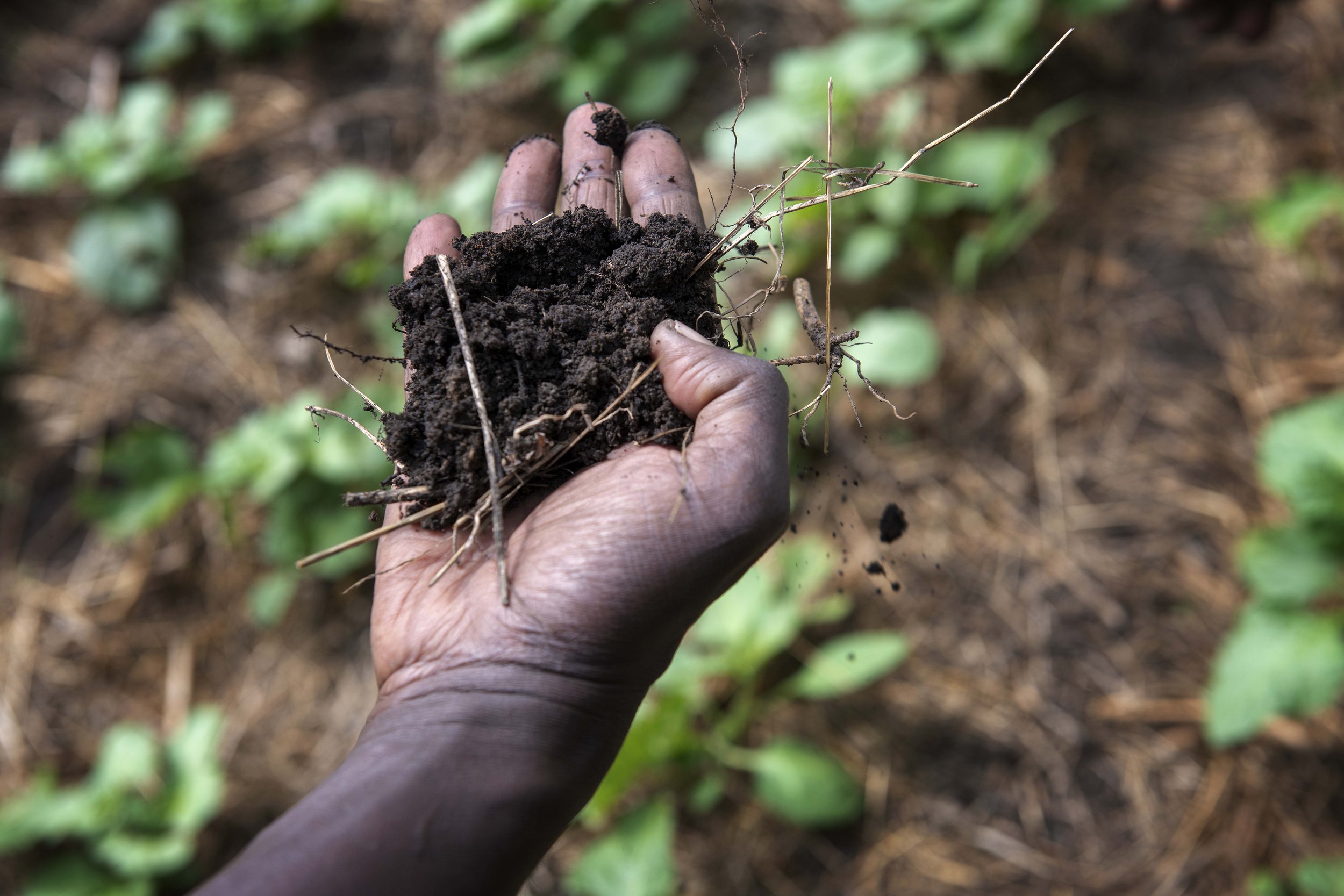
A Global Call to Action for the Health of Our Soil
To ensure global health and wellbeing, the world’s leaders must prioritize soil health.
Building on the momentum from the UN Food Systems Summit, the UNCBD COP15, the UNCCD COP15, and the UNFCCC COP28, a key goal for the Coalition of Action 4 Soil Health (CA4SH) in 2024 is to achieve strong policy outcomes.
Healthy soil provides multiple ecosystem services, contributing to food and nutrition security, biodiversity, ecosystem and landscape restoration, and climate action. Preserving healthy soils and restoring degraded soils where possible is critical to overcoming multiple challenges, including climate change, hunger, poverty, clean water and sanitation, life on land, life in water—and the solution of these challenges will positively contribute to quality education, good health and wellbeing, and reduced inequality around the world.
Soil health plays a vital role in climate adaptation – through improving degraded soils and through increased storage of atmospheric carbon. Soils are the third-largest carbon sink on Earth, after oceans and forests. Degraded soils cannot retain or store carbon, and the effects of climate change can affect healthy soil’s ability to do the same.
Soil quality is at the very core of our food production systems. Without healthy soil, we cannot grow healthy and nutritious food. Farming is mining; the plants extract minerals, which animals and humans absorb when they consume the plants. Food grown in poor soil is nutrient deficient and yields are lower than optimum.
Soil is also the most biodiverse material on Earth. We cannot restore degraded land, or combat desertification and drought, without dramatically increasing global soil health. Good soil biodiversity supports plant growth, improves water storage, reduces erosion, helps carbon capture, cycles nutrients, and supports good soil structure.
This draft resolution provides a framework for member states and the COP Presidencies to embrace, adapt and endorse the critical role of soil health for a healthy planet. We are encouraging member states to adopt the Soil Health Resolution and to take it forward into formal negotiations. We propose three options for doing so:
Adopt the Resolution in its current form
Extract relevant commitments that suit national priorities and capacities
Use the commitments as a starting point for drafting unique commitments that suit national needs
The Soil Health Resolution was drafted with support from members, including governments across the partnership. To date we have received valuable contributions and have gone through a number of iterations and revisions.
The draft resolution was presented during a high level plenary at UNFCCC COP27 in the Food Systems Pavilion where it garnered further support, and again at the UNFCCC COP28. The COP28 proceedings resulted in soil health being officially recognized through the COP28 UAE Declaration on Food and Agriculture - specifically Declaration No. 5, calling on enhancing soil health. Moreover, the Soil Health Resolution aligns with the UN Climate Change High-Level Champions Call to Action, which includes a priority area on soil health (No. 7).
We as a Coalition of global stakeholders from across sectors and scales are ready and eager to support Member States in scaling soil health. We are committed to gender and social equity, participation from youth, and collaborative and participatory approaches. Let’s go beyond making commitments and into implementation, together.
We urge negotiators to take advantage of this important moment in the UN policy framework to centre soil health and achieve national goals.
-

Call to Action for Soil Health
-

Sign the Call to Action
-

List of Endorsements

Never miss an update
